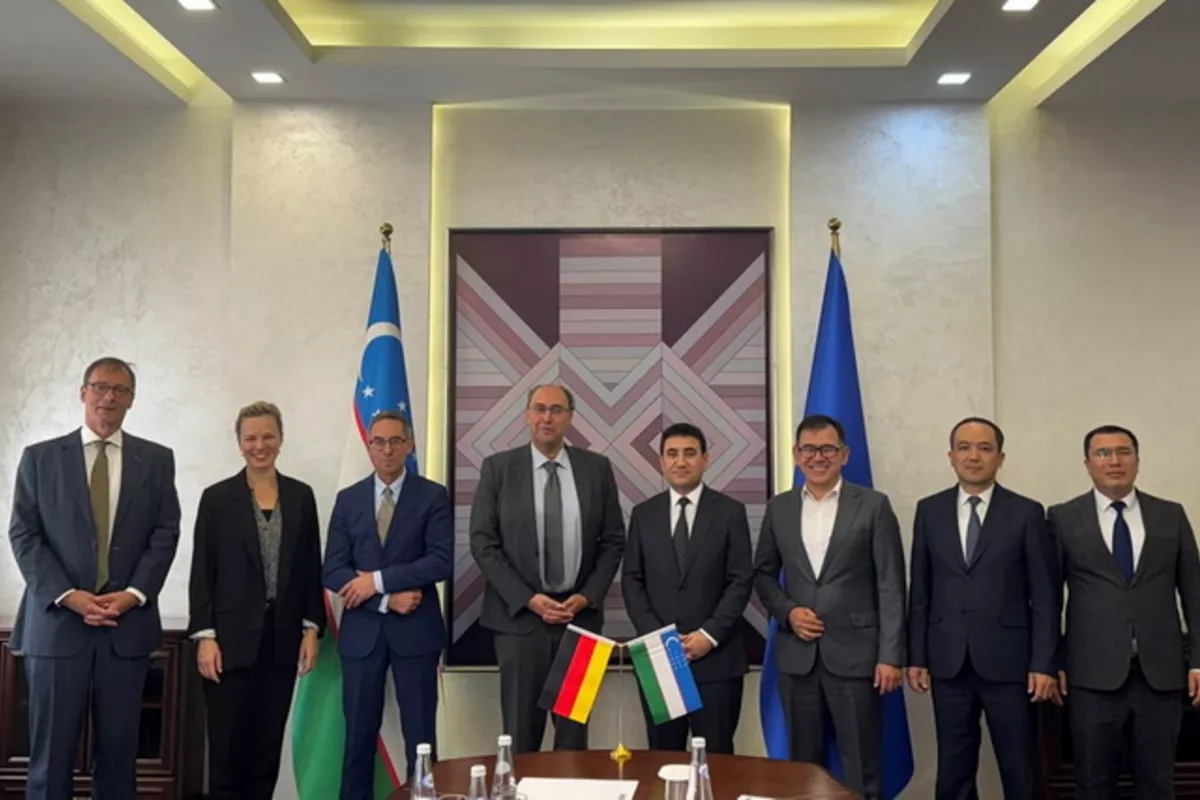
photo: UzDaily.uz
Uzbekistan and Germany are strengthening their strategic partnership in the field of public asset management, as top officials from Uzbekistan’s State Asset Management Agency met with a high-level German delegation led by Dr. Andreas Kerst from Germany’s Federal Ministry of Finance.
The talks, organized by the German Agency for International Cooperation (GIZ), mark a new stage in the long-standing partnership between the two countries in the field of state asset management, The Caspian Post informs via Uzbek media.
The meeting highlighted ongoing collaboration between the Agency and GIZ, which in recent years has included expert-led seminars, legislative consultations, and study tours to Germany aimed at sharing best practices in managing public assets.
The session also brought together key figures including Mathias Nehm of Germany’s Indecon Consulting and Uzbek economist Bahodir Atakhanov. Both experts are currently engaged in developing Uzbekistan’s forthcoming “Strategy for Reform and Privatization of State Enterprises for 2026-2030,” supported by the Asian Development Bank.
Discussions focused on strengthening bilateral cooperation and charting new directions for reform. Priority areas included enhancing the efficiency of state-owned asset and real estate management, accelerating privatization, aligning regulatory frameworks with global standards, and introducing corporate governance practices modeled on successful German systems.
Particular emphasis was placed on the joint drafting of a new version of the Law “On Joint-Stock Companies” and updates to the Corporate Governance Code. These reforms aim to improve transparency, boost investor confidence, and streamline the operations of public enterprises.
Uzbek officials also outlined progress on the draft 2026-2030 privatization strategy, which seeks to reduce the footprint of state-owned enterprises, foster private sector growth, and improve asset management mechanisms. Germany’s continued technical assistance will be instrumental in executing these reforms.
In turn, the German delegation presented the organizational model of the Institute for Federal Real Estate (BImA) as a potential reference point for Uzbekistan’s transformation of large state-owned holdings and privatization of subsidiary companies and services.
Both sides recognized the need for a modern, digitized state asset management system tailored to Uzbekistan’s evolving economic goals. Such a system, they agreed, will enhance efficiency, accountability, and innovation in the public sector.
At the conclusion of the meeting, both parties reaffirmed their commitment to intensifying reforms, expanding private sector involvement, and pursuing joint projects that will help build a sustainable and strategic partnership in the field of state asset management.
Share on social media